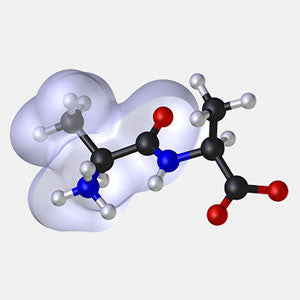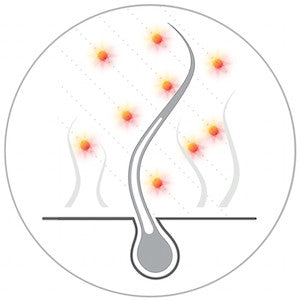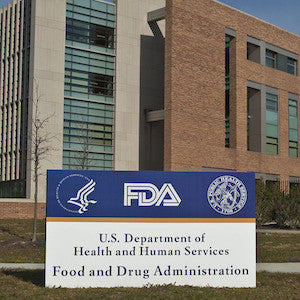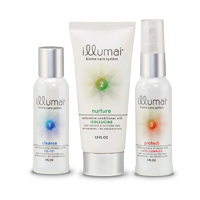Cocamide DEA - How Can a "Natural" Ingredient Cause Cancer?

Cocamide DEA. It looks pretty harmless, right? Chances are you’ve even seen it and thought, “sounds like coconut - must be natural.” And while coconut oil has been enjoying a moment in the sun, this chemically-modified version is one you’ll want to steer clear of.
True, Cocamide DEA starts with coconut oil, but that’s the only thing natural about it. It’s then highly refined and processed with powerful chemicals – transforming it into a man-made product that can actually cause cancer, according to the State of California, which keeps a list of chemicals known to cause cancer or birth defects. (Keep in mind, the FDA doesn’t regulate the term “natural” just yet. Translation: just because something is labelled “natural” doesn’t mean it’s harmless.)
Cocamide DEA is used as a lathering and thickening agent – it makes your shampoo or body wash feel creamier. It feels nice, but is completely unnecessary. In small doses, it can cause mild skin irritation, but in high doses, this chemical – because of contaminating nitrosamines – is flagged as a potential carcinogen to humans. The problem is, that “high dose” is usually about the amount that is added to our health and beauty products. In fact, a 1998 study by the National Toxicology Program found a connection between regular exposure to DEA and cancer in lab animals. Despite this, since there was no certainty that it would do the same in humans, the cosmetics industry continued to include it as an ingredient. Time to ponder how often you’re washing… and what you’re washing with.
Here’s the problem: Cocamide DEA is produced using a chemical called “diethanolamine” (DEA). “Unfortunately, during the manufacturing of Cocamide DEA, some of that DEA turns into a powerful cancer causing substance called ‘nitrosamine,’” says Dr. Michael Zasloff, MD, PhD and former head of human genetics within the National Institutes of Health. It also turns out that nitrosamines can also form after the Cocamide DEA has been mixed into a shampoo, since several of the ingredients commonly included in hair and skin care products can make that happen chemically. Dr Zasloff adds: “There is no safe level of nitrosamine: You don’t want it anywhere near you! And if you use a product containing DEA, there is a good chance it will also contain a nitrosamine.”
Be aware that in addition to cocamide DEA, there are other ingredients in hair and skin products that share its potential to cause cancer by forming nitrosamines. They include:
- Diethanolamine (DEA)
- DEA-Cetyl Phosphate
- DEA Oleth-3 Phosphate
- Lauramide DEA
- Myristamide DEA
- Oleamide DEA
- TEA-Lauryl Sulfate
- Triethanolamine (TEA)
Nitrosamines that are present along with DEA are easily absorbed through the skin and can be found in everything from shampoo to hand wash to shaving cream. In other words, if your product foams, take a peek at the ingredients. Until we can change the laws to keep these chemicals out of our health and beauty products, be mindful of what you put on your bodies – for your health, and for your family.
Learn More . . .

What are Sulfates? And Why Should You Care if a Shampoo is Sulfate-Free?
Sulfates, such as sodium lauryl sulfate (SLS), are chemicals used to create strong detergents. Because they are such efficient cleansers and degreasers, sulfates are commonly used in manufacturing and construction industries to clean heavy machinery.

Biome Care - Healthy Hair Starts Here


